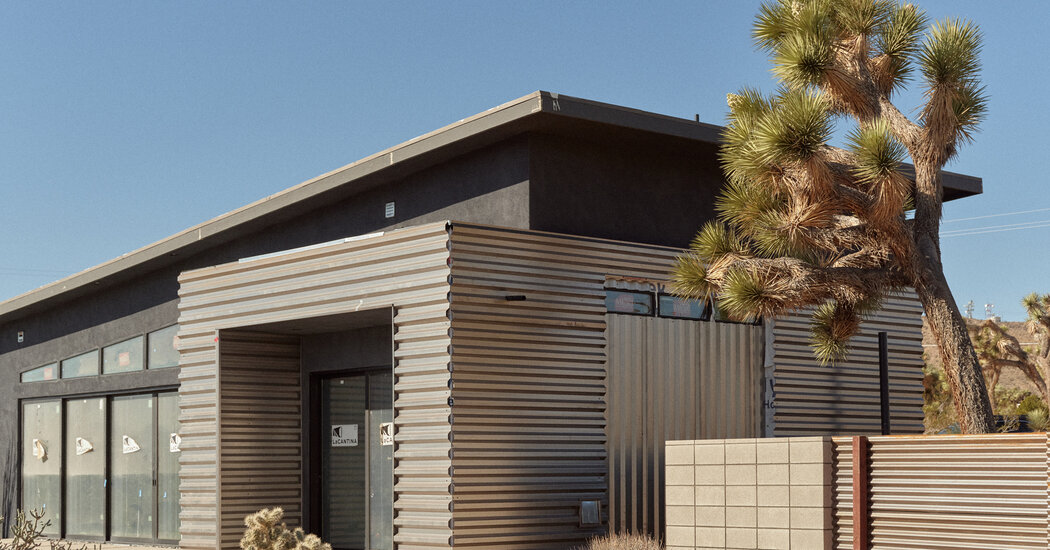
Tonya Hansel, 36, who has been living in the area since she was 4, shares this concern. For the past eight years, she has been cleaning short-term rentals. She often works seven days a week to make ends meet. Still, when it comes to seeing her 14-year-old daughter, it’s better than her previous gig as a body piercer, she said.
But last month, she lost the thing that allowed her family to survive on $65 to $150 a cleaning: her $575-a-month rent.
In 2014, when she moved into her two-bedroom apartment on the north side of downtown Joshua Tree, there were only a handful of short-term rentals nearby, but they were in nicer neighborhoods.
But then investors began to see her neighborhood as prime lodging territory. At first, as renovators outnumbered heavy drug users, “it cleaned up the neighborhood,” she said. But then it became eerie as she realized that the families she used to run into were gone and that virtually every house was a short-term rental with “the same white, black and gray paint, shiny fence and fairy lights.”
These didn’t seem to be owned by the “jumble of artists and weirdos” — like her client Mr. Giuliano of the Desert Yacht Club. Rather they seemed to be owned by people who saw rentals as “easy money.”
In January, Ms. Hansel learned that her lease would be terminated in 60 days because her landlord was remodeling. It’s impossible to find a place, she said in February, as she began packing up, “because it’s either an Airbnb or it’s three times what I can afford.”
At the last minute, she found a temporary $800 one-bedroom in Landers, about 15 miles from Joshua Tree. It’s not ideal, Ms. Hansel said, noting that her daughter can no longer walk to school. But, she said, “we’re safe for now.”




